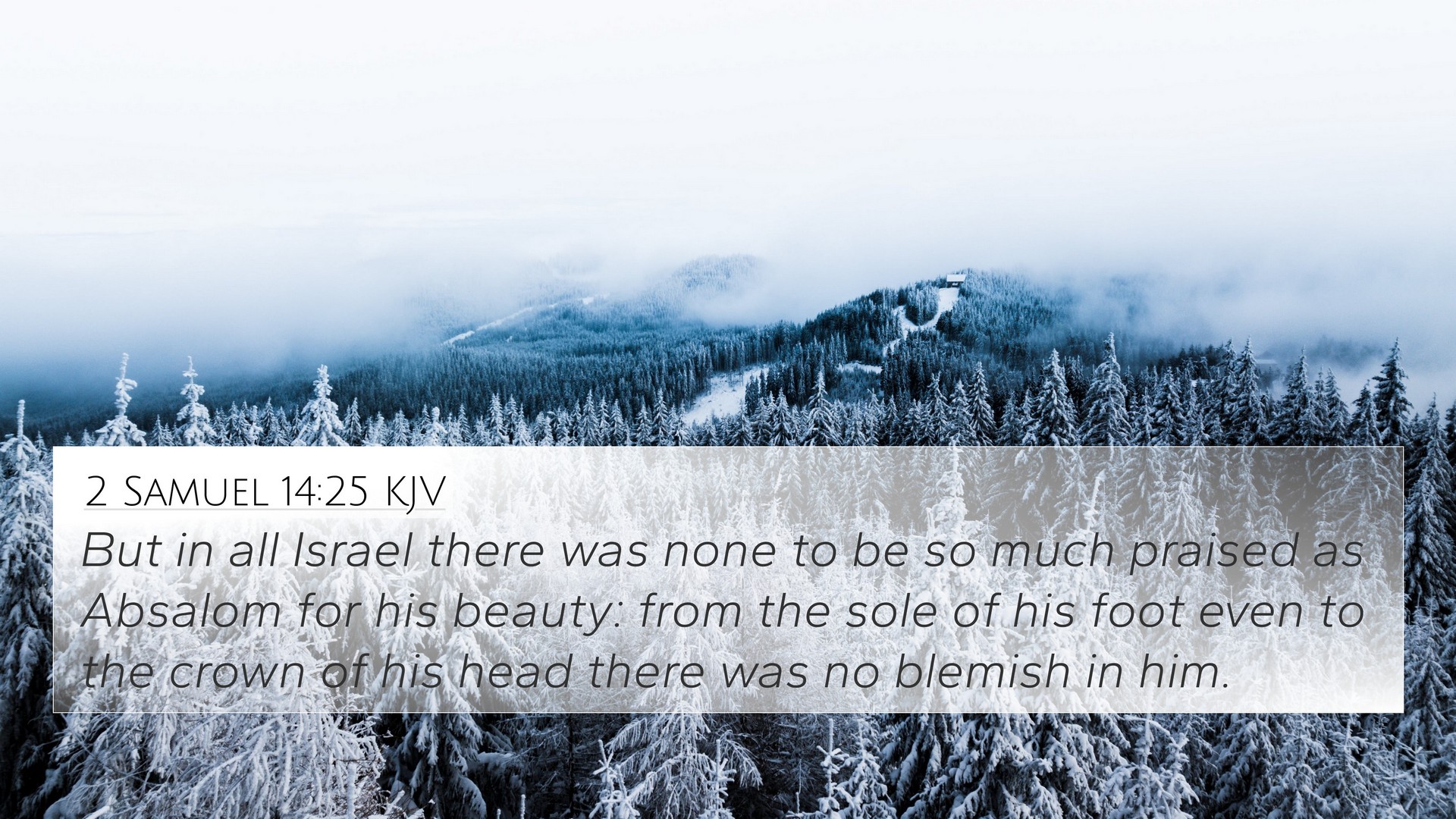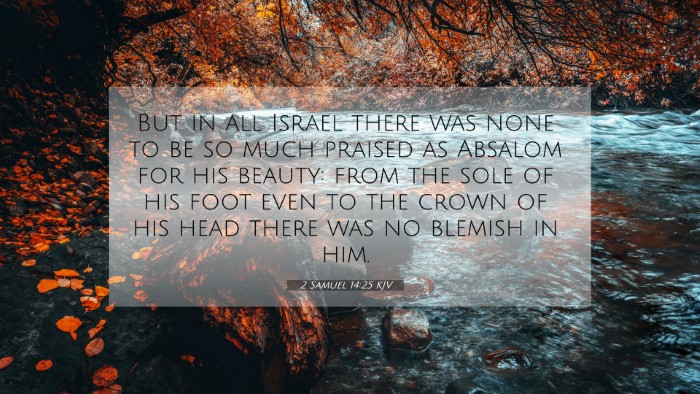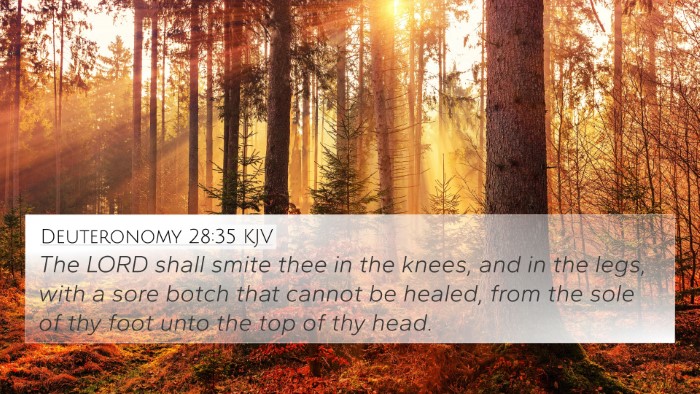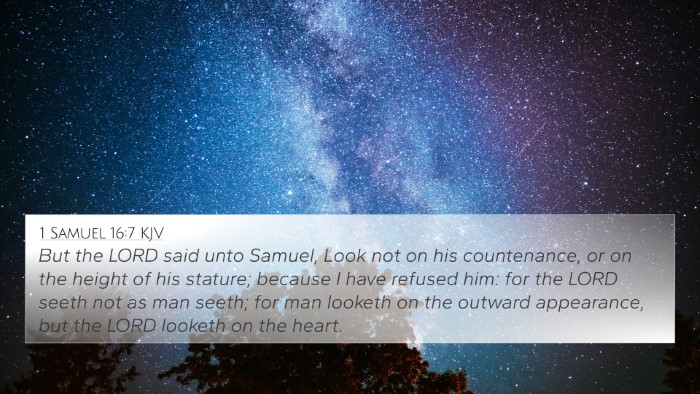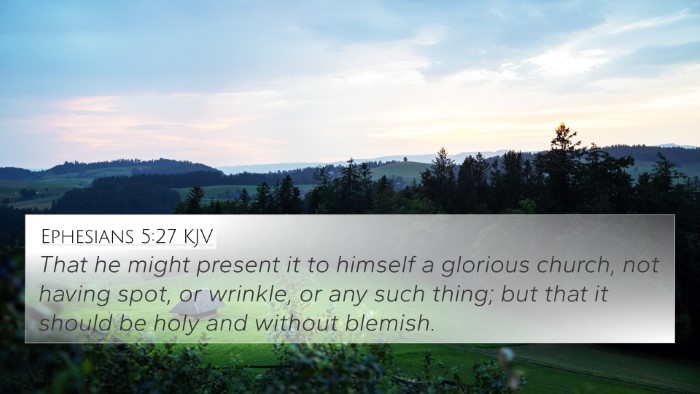Understanding 2 Samuel 14:25
Bible Verse: "But in all Israel there was none to be so much praised as Absalom for his beauty: from the sole of his foot even to the crown of his head there was no blemish in him." (2 Samuel 14:25)
The verse presents a remarkable description of Absalom, capturing the attention of the reader with its vivid imagery and implications surrounding beauty, pride, and eventual downfall.
Commentary Insights
Various public domain commentators offer insights into the implications of this verse:
Matthew Henry's Commentary
Matthew Henry notes that Absalom's beauty was not merely skin deep; it reflects the complexity of his character. His outward appearance garnered admiration, setting him apart as a figure of distinction in Israel. However, Henry cautions against being swayed by external appearances, emphasizing that true worth is found in character, morality, and relationship with God.
Albert Barnes' Notes
Albert Barnes emphasizes that Absalom's description was a means to illustrate the potential for leading others astray based on superficial attributes. He connects this beauty with Absalom's later actions, suggesting that those who are admired for their appearances may misuse their influence, leading to devastating consequences for themselves and those they impact.
Adam Clarke's Commentary
Adam Clarke highlights not just Absalom's physical beauty but also his hair, which became a symbol of pride. Clarke attempts to relate this back to the consequences of vanity and the eventual humility that comes through suffering. This serves as a reminder of the transient nature of beauty and the enduring impacts of one's deeds.
Thematic Connections
- Beauty and Pride: The scripture explores the dangers of vanity (Proverbs 31:30).
- Influence and Leadership: Connection to leaders' characteristics - 1 Timothy 3:2.
- The Fall Due to Vanity: Link to the fall of Lucifer (Isaiah 14:12).
- Outward Appearance vs. Inner Worth: 1 Samuel 16:7 emphasizes God’s focus on the heart.
- Consequences of Sin: Theme of downfall due to pride is reflected in James 4:6.
- Judgment and Consequences: Galatians 6:7 discusses sowing and reaping.
- True Beauty: A biblical view of beauty in righteousness, Isaiah 33:17.
- Comparative Descriptions: Showcasing other biblical figures' characteristics, such as David's heart (Acts 13:22).
- Vanity: Ecclesiastes 1:2 speaks on the vanity of vanity.
- Parental Relationships: Connection to David’s failure as a father and Absalom's rebellion (2 Samuel 13:28).
Cross-Referencing Biblical Texts
This verse can be understood more deeply by examining its connections with the following cross-references:
-
1 Samuel 16:7 - "But the Lord said to Samuel, 'Do not look on his appearance or on the height of his stature, because I have rejected him. For the Lord sees not as man sees: man looks on the outward appearance, but the Lord looks on the heart.'"
-
Psalm 139:14 - "I praise you, for I am fearfully and wonderfully made. Wonderful are your works; my soul knows it very well."
-
Proverbs 31:30 - "Charm is deceitful, and beauty is vain, but a woman who fears the Lord is to be praised."
-
Isaiah 14:12 - "How you are fallen from heaven, O Lucifer, son of the morning! How you are cut down to the ground, you who weakened the nations!"
-
James 4:6 - "But he gives more grace. Therefore it says, 'God opposes the proud, but gives grace to the humble.'"
-
Galatians 6:7 - "Do not be deceived: God is not mocked, for whatever one sows, that will he also reap."
-
1 Timothy 3:2 - "Therefore an overseer must be above reproach, the husband of one wife, sober-minded, self-controlled, respectable, hospitable, able to teach."
-
Ecclesiastes 1:2 - "Vanity of vanities, says the Preacher, vanity of vanities! All is vanity."
-
Acts 13:22 - "And when he had removed him, he raised up David to be their king, of whom he testified and said, 'I have found in David the son of Jesse a man after my heart, who will do all my will.'"
-
Isaiah 33:17 - "Your eyes will behold the king in his beauty; they will see a land that stretches afar."
Reflections on Beauty and Character
In studying 2 Samuel 14:25, it is vital to reflect on the connections between outward beauty and inward worth. The Scriptures remind us that while Absalom's appearance made him a standout figure, it ultimately did not dictate his moral standing or his legacy.
Practical Applications
Through examining this verse and its commentaries, readers are encouraged to:
- Focus on developing inner character rather than solely seeking external approval.
- Consider how leadership is influenced by personal integrity and moral grounding.
- Recognize the transient nature of physical beauty and its potential pitfalls.
- Engage in cross-referencing as a tool for deeper Biblical understanding.
